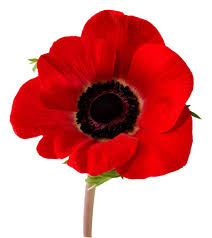
记忆方法
1. 罂粟碱(PapaVerine, 别名: 怕怕非林) => PIE imitative root *pap- "swell" => poppy.
2. papaverine: 【药物】罂粟碱(可治疗胃痉挛、支气管炎和动脉疾病,长期服用可上瘾)。
2. papaverine: 【药物】罂粟碱(可治疗胃痉挛、支气管炎和动脉疾病,长期服用可上瘾)。
中文词源
poppy 罂粟
来自古英语popig,来自West-Germanic*papua,可能借自拉丁语papaver,罂粟花。
英语词源
- poppy
-
poppy: [OE] The Latin word for ‘poppy’ was papāver. A post-classical descendant, *papāvum, was borrowed into prehistoric West Germanic as *papau. This was later altered to *papāg, which became Old English popæg, ancestor of modern English poppy. Italian papavero ‘poppy’ is a reminder of the Latin word.
- poppy (n.)
- late Old English popig, popæg, from West Germanic *papua-, probably from Vulgar Latin *papavum, from Latin papaver "poppy," perhaps a reduplicated form of imitative root *pap- "to swell." Associated with battlefields and war dead at least since Waterloo (1815). Poppy-seed is from early 15c.; in 17c. it also was a small unit of length (less than one-twelfth of an inch).
权威例句
- 1. She pinned the poppy to his raincoat.
- 她把罂粟花别在了他的雨衣上。
- 2. The Queen laid a poppy wreath at the war memorial.
- 女王向阵亡将士纪念碑献了罂粟花圈.
- 3. Bees moved , humming thoughtfully , from scarlet poppy to purple thistle.
- 蜜蜂在鲜红的罂粟花和艳紫的蓟草花之间飞舞嗡嗡低吟.
- 4. According to my database, the poppy has a powerful sleep - inducing effect.
- 据我的数据库显示, 罂粟具有显著的催眠作用.
- 5. Poppy backward, in the top to an oval - shaped fruit - poppy fruit.
- 罂粟花落后, 在顶端结成椭圆型的果实 —— 罂粟果.
